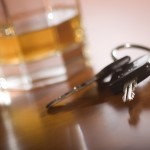If the police pull you over for suspicion of DWI while driving in Long Island or New York, cooperate with the officer, but politely refuse to answer any questions. Remain calm, try to smile, and if the officer asks to see your driver’s license, vehicle registration, and proof of insurance, go ahead and produce them. Do not, however, answer any other questions. The officer’s questions are intended to generate answers that can be used as evidence against you, and you have a constitutional right to avoid self-incrimination. If you’re arrested for DWI, you have a right to keep an attorney present during an interrogation. After a DWI arrest, politely insist on that right, and call an experienced Long Island DWI lawyer as soon as you are able.
In New York, when you receive a driver’s license – or when you drive on New York streets if your license is out-of-state – you are implying your consent to take a breath test if a police officer requests it. You can be asked to take a blood test if:
- an officer sees you violate a traffic law
- an officer reasonably believes that you are driving while intoxicated
- you have been involved in a traffic accident
Contrary to popular belief, field sobriety tests are not mandatory and can be refused – for several reasons. First of all, the tests are not 100% accurate. They are based on calculations for how average people will react depending on the amount of alcohol or drugs in their system. Since not everyone is average, the results can’t be depended on as concrete evidence of a wrongdoing. Second, the tests are conducted often on the sides of busy highways, with the test taker exposed to the elements, under the glare of often bright, flashing lights. There are simply too many environmental factors in play to depend on the accuracy of a field sobriety test.
However, chemical testing, which uses a sample of a suspect’s blood, breath, or urine to determine whether or not he or she has consumed drugs or alcohol – is not optional. In New York, the penalty for a chemical test refusal is the loss of driving privileges and a fine, whether or not the results of the test would have come back positive or negative.
Except at a DWI checkpoint, the police must have probable cause to stop you in traffic. The officer must have a plausible reason to believe that you have committed or are committing a crime or a traffic violation. If you can avoid being pulled over in traffic, you can probably avoid a lot of additional legal problems on Long Island and in New York City. If you are stopped in traffic and arrested for DWI, contact our reputable Long Island DWI attorneys immediately. When a driver is pulled over by the police in New York City or Long Island, the officer has probably observed a violation, and it can be something quite trivial. Listed here are some of the leading reasons why you might attract the attention of the police:
- Your license plate is outdated or not affixed properly to your vehicle.
- A taillight, headlight, turn signal, or brake light isn’t working.
- You tossed out a gum or candy wrapper or a cigarette butt.
- Something is blocking your windshield or hanging from your rearview mirror.
- You have after-market window tint film on your windows. In New York, only rear windows may be tinted and only if a vehicle has outside rearview mirrors on both sides.
You’ll need to keep any documents you receive from the police – they’re important. And you’ll also want to create some paperwork of your own. Try to piece together precisely what happened in the several hours before you were arrested, and write it all down in your own words. Use your cell phone, social media accounts, and receipts or records of purchases to help you remember where you were, whom you spoke with, and where and why you were stopped and arrested. Return to what you’ve written after a day or two, and you’ll probably remember more. Then share this information with your attorney.
If you are convicted of DWI in New York state, the penalties for a first-offense can involve fines ranging between $500 to $1,000, a with attendance at a victim-impact panel, a yearly $250 “driver responsibility assessment” fee for three years, up to a year in jail and three years of probation. Your driver’s license could also be revoked for up to six months. If you are facing a second or subsequent DWI charge, expect even harsher penalties. The best strategy is simple. Don’t drink and drive. If you plan on driving, avoid drinking entirely, and if you plan on drinking, arrange for a taxi, a limo, a ride-sharing service, or a designated driver. Nevertheless, if you’re charged with DWI in New York City or on Long Island, seek legal help and call a reputable DWI attorney in Long Island as quickly as you can.
Should You Flee?
Running from the law never helps, and running makes it tough for a lawyer to help you. If you are arrested for a DWI charge in Long Island or in any one of the five boroughs – now or in the future – don’t try to run. The smarter strategy is fighting the charge with the assistance of a DWI lawyer in Long Island. An arrest does not mean that you will be convicted, and a good DWI attorney can help. After an arrest for DWI, put your case immediately in the hands of a knowledgeable criminal defense attorney in Long Island, don’t run from the law, and follow your attorney’s recommendations.
If you are arrested for DWI in Long Island or any of the areas in the five boroughs, remember that an arrest does not necessarily mean a conviction. A good New York DWI attorney has a number of ways to defend you. If you receive a DWI charge – whether it’s now or in the future – contant a knowledgeable DWI attorney in Long Island.











Comments are closed.